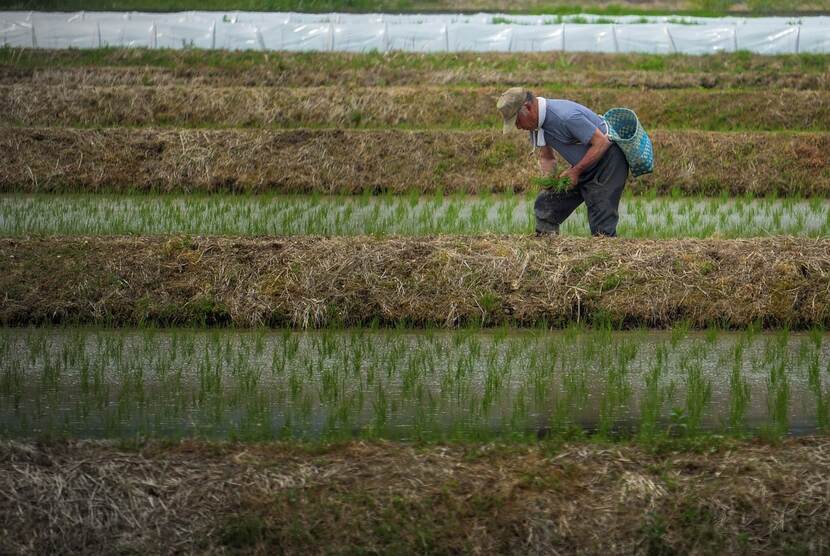Japan: Agricultural News Update (10 - 24 Nov. 2020)
Stay updated on the latest agricultural news in Japan, that we publish every two weeks.
10 to 24 November, 2020
Rising food price
In Japan, over the past eight years, the retail price of food products increased 4% but considering the net weight, the change is as high as 11%. The reason is that food products are being sold in ever smaller amounts while the retail price of those has not gone down as much. The trend is the result of decrease in the number of people in households.
Source: Portion sizes shrink in aging Japan as 'real' food prices rise - Consumers pay 11% more by weight for ingredients as household members decline
Prime Minister Suga’s agricultural & green policy
New administration of Prime Minister Yoshihide Suga is making the policy move. In order to achieve a goal to increase exports of agricultural, forestry and fishery products from ¥1 trillion to ¥2 trillion by 2025 and ¥5 trillion by 2030. The Ministry of Agriculture, Forestry and Fisheries (MAFF) will bear the main responsibility. Rice will be one of the domestic agricultural products that can be exported, because its production exceeds the domestic demand. However, the domestic agricultural industry warns that rice producers are under threat from cheap imports. The government continues a policy of hindering increased output, by paying subsidies to producers to keep rice production down amounts. If the government wants to increase exports, production needs to be raised.
Source: What will it take to make Suga’s agricultural export policy succeed?
The Japanese government is set to maintain tariffs on its five sensitive agricultural product categories - rice, beef and pork, wheat, dairy and sugar - to protect domestic producers from a potential influx of cheap imports, according to a draft of the Regional Comprehensive Economic Partnership (RCEP). If agreed, the RCEP will be an economic bloc representing around a third of the world's gross domestic product and population, even without India.
Source: Japan to keep tariffs on sensitive farm product imports under RCEP deal
PM Suga reiterated his commitment to accelerating digitalization in Japan and cutting greenhouse gas emissions at a related event of the Asia-Pacific Economic Cooperation summit. He said "Japan will aspire for the Free Trade Area of the Asia Pacific" through the RCEP and the 11-member Comprehensive and Progressive Agreement for Trans-Pacific Partnership.
Source: Japan PM Suga stresses focus on digitalization, green society at APEC event
PM Suga pledged that Japan's goal of reducing its emissions of greenhouse gases to net zero by 2050 at the G20 summit. He also announced plans to offer technical assistance to developing countries.
Source: Suga tells G20 Japan will lead green industry
Sustainability with Japanese food
Craft gin
A woodworker in Niigata Prefecture, central Japan, creates a craft gin in hopes to promote sustainability. Nigata-based startup Rokumoji Kraft Gin raised money from cloud funding and start reselling from this November. The main ingredients of gin are Thujopsis wood from thinning and apple core.
Source: Craft Gin to Promote Sustainability
Seaweed
Whilst seaweed has been popular in Asia, particularly Japan, Mr. Vincent Doumeizel, a senior advisor on ocean-based solutions at the UN Global Compact, is confident that it has the potential to become a mainstream food throughout the rest of the world. “By farming just two per cent of the ocean, we could provide enough protein to feed a world population of 12 billion people. Seaweed is extremely protein rich, low in fat, low in carbohydrates, and rich in vitamins, zinc and iron”, said Mr. Doumeizel.
Source: A deep dive into Zero Hunger: the seaweed revolution
Food labeling and Disaster
The Japanese Ministry of Agriculture, Forestry and Fisheries (MAFF) has instructed the local authorities that the regular enforcement of food labeling regulations will be put back as of November 23. MAFF first instated flexible operations over food labeling on July 3, because it was important to supply food products smoothly to the disaster areas, especially devastated Kagoshima and Kumamoto.
Source: No more leniency: Japan ends flexible enforcement of food labelling rules permitted after heavy rains disaster
AgriTech for paddy field
Toyama-based AgriTech startup Enowa raised 100 million yen. This startup has launched the paddy field service “padtich” which controls the water management process remotely and automatically. With this financing, this company will develop new service of padtich.
Source: AgriTech startup for paddy field service raised 100 million yen.


26 October to 9 November, 2020
Covid-19 effect on Agriculture
Pandemic creates new supply chain and new food demands in Japan.
Because of the pandemic, the International Food Supply Chain may shift from the current model to a more sustainable local model. Also, more people have been relocating from urban to rural regions. A June Cabinet Office survey showed that 25% of people working remotely might want to move to rural areas.
Source: COVID-19 and a Better Model for Society: How Globalization and Urbanization Created the Perfect Storm
Japan’s frozen food business got a boost from the pandemic, because more people eat at home. Domestic sales of frozen foods are expected to hit a record high in 2020. Japan's industry is responding with products like small freezers, systems with cleaner refrigerants, and Cells Alive System (CAS) technology.
Source: Japan's food industry grows hot with high-tech freezing Stay-at-home lifestyles create new demand for frozen bread, fruits and meals
AI and Innovation
Japanese companies are rolling out artificial intelligence and other cutting-edge technologies in the agricultural sector.
Skilled tuna judging and searching fishing areas with AI
Some buyers in the Toyosu fish market, including a major sushi chain, are already using an AI app to determine the quality of tuna. In saury fishing, an AI service for searching better fishing grounds was launched this season.
Source: Skilled tuna judging and searching fishing areas with AI
Farmnote HD Inc. announced new calving detection technology using AI.
It is expected to reduce patrol work and risks due to delays in recognition of calving.
Source: Cow calving detection function announced by Japanese start-up “Farmnote”
Telexistence began testing remote-controlled, so-called avatar robots as clerks in convenience stores this summer.
The technology has the potential to replace humans, helping with labor shortages, and with the dangers of natural disasters like disease outbreaks in densely populated areas.
Source: Army of avator robots readies to invade Japanese job market. Remote controlled humanoids can stock shelves, quard offices and aid astronauts
Food policy
A controversial bill to revise the “Plant Variety Protection and Seed Act” may cause problems for Japanese farmers. The documentary “Tane wa Dare no Mono” (Seeds Belong to Who?) explains how prefectural agricultural research centers develop crop varieties specifically for local soil and climate conditions. Farmers initially buy these seeds from the research centers, but were not restricted from freely producing new seeds from previous harvests. With the revision, this practice may become illegal.
Source: Does protecting food products protect Japan’s farmers?
Alternative source of protein
The coronavirus pandemic has promoted awareness of environment-friendly meat alternatives in Japan
A major Japanese hamburger chain began selling a plant-based burger from October. They use a patty of customized soybeans selected by Daiz Inc.’s AI system for determining the most suitable germination conditions.
Source: Eco-friendly, healthy plant-based meat in spotlight in Japan
In August, Seven-Eleven, Japan's biggest convenience store chain, started marketing soy-based meat products in burgers and noodles. Their competitors Lawson also launched soy-based meat items in rice balls and noodles. Euromonitor International says the meat substitute market in the Asia-Pacific region is expected to reach $17.1 billion in 2020, up 11.6% from 2019. The pandemic will further accelerate this growth with people’s rising health concerns.
Source: Impossible Foods and others smell profits in Asia retail market
LAN Tokyo
@AgriTokio
tok-lnv@minbuza.nl
